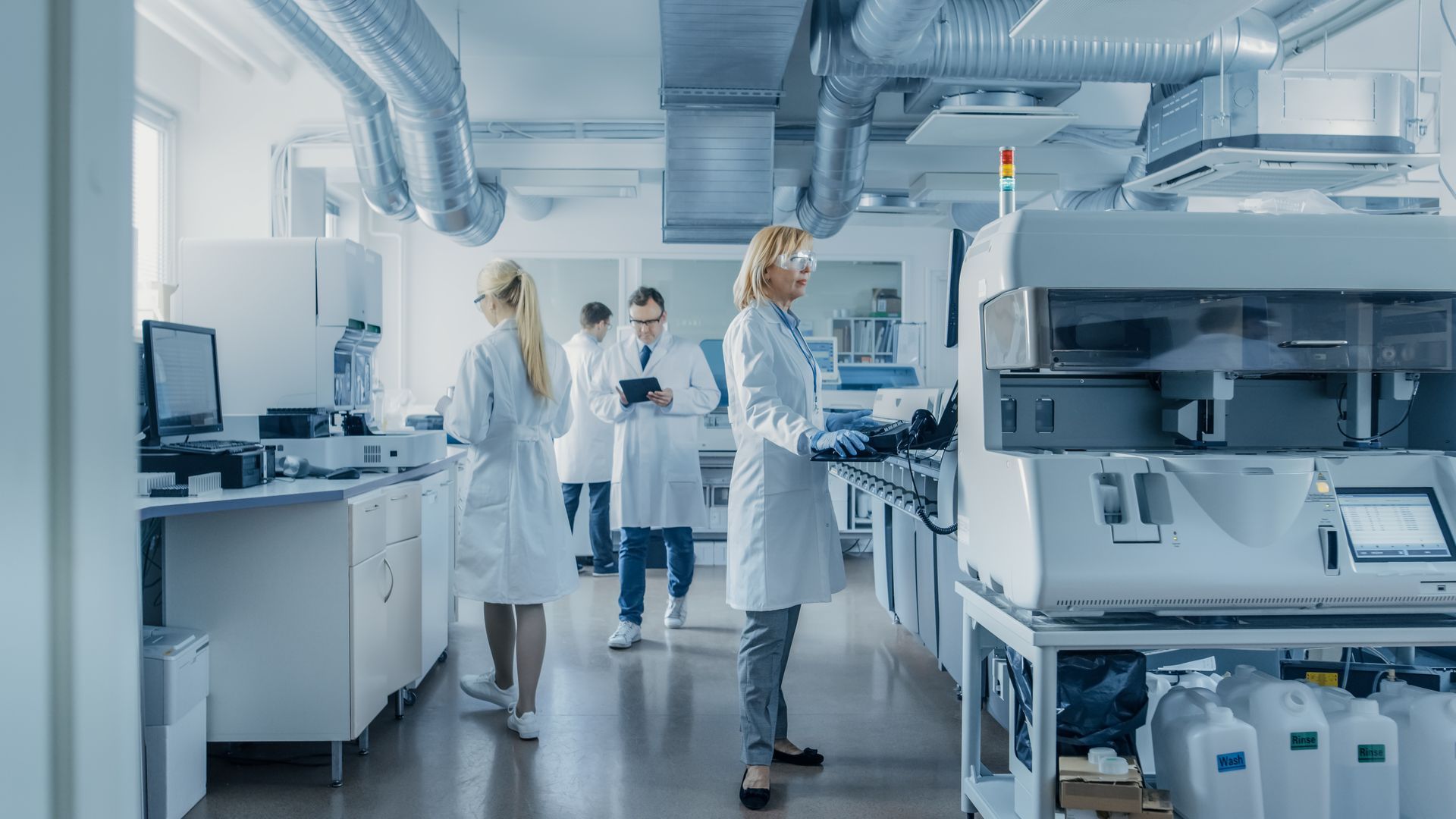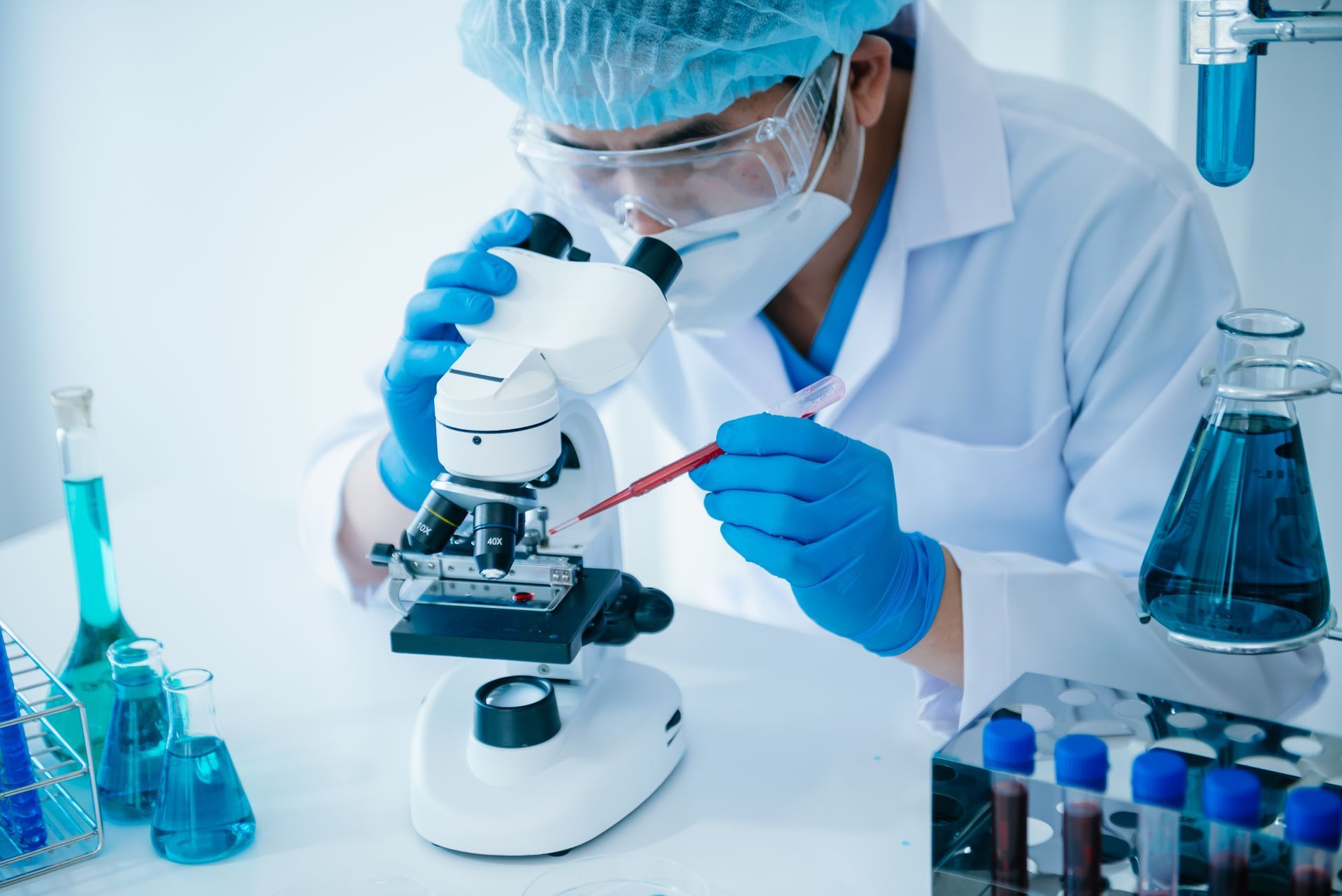LCMS and LCMSMS Service: Properly Maintaining your Mass Spectrometer
Ted Palashis | March 4, 2020
Liquid chromatography-mass spectrometry, also referred to as LCMS, is an analytical chemistry technique that combines the mass analysis capabilities of mass spectrometry with the physical separation ability of liquid chromatography. Such a highly sensitive instrument needs to be serviced and maintained appropriately and effectively. Avoiding contamination can help prevent signal suppression, reduce background noise, minimize adduct formation, and increase its ability to identify spectrum complexity. In order to achieve the most accurate results, contamination prevention is crucial. To maximize your LCMS instrument sensitivity, we suggest the following:
Only Use Volatile Buffers
While some instrument manufacturers claim that involatile buffers like phosphate can be used, you should only use volatile buffers. The sampling orifice can become blocked and the voltages required by the electrostatic element can change. The conditions created by involatile buffers hamper optimum ion generation.
Check the Rotary Pump Oil
Rotary pumps consume minuscule amounts of oil as a part of their normal operation, and they must be topped off regularly. The rotary pumps can be exposed to a variety of different materials and solvents that can increase wear on the pump’s components. We advise draining and replacing the oil at the manufacturer’s recommended interval. Additionally, some models of these pumps can be ballasted to remove more volatile contaminants. If your pump has this feature, use the valve on the pump to clear it on a weekly basis to maintain the quality of the vacuum within the mass spectrometer.
Limit Your Flow Rate
While electrospray can allow newer equipment to utilize a higher flow rate, it is still advisable to use a lower flow rate. With an increased flow rate, more material enters the mass spectrometer, which increases the rate of contaminant buildup.
Using a Divert Valve
Using a divert valve, you can switch portions of the mobile phase to waste before it reaches the mass spectrometer. With a properly optimized method, this allows you to only send your analytes through the mass spectrometer, further preventing buildup of involatile components within the instrument.
Limit Your Sample Concentration
Loading a high concentration of your analyte onto the column can increase the visibility of smaller components, however, it can also quickly contaminate your source. Using a divert valve can divert the concentrated material to waste, helping to prevent contamination, however the best way to mitigate the risk of compromising your source is to limit your sample concentration when possible. If you must have the concentrated analyte go into the source, we recommend limiting the number of injections.
Do Not Vent Too Frequently
When you vent a mass spectrometer you increase the risk of wear and other component damage. These instruments perform best when they are constantly running. The turbo pump which creates a high vacuum is especially susceptible to damage from venting. The rush of air that accompanies the vacuum when it is engaged puts an intense amount of stress and strain on the pump’s vanes, specifically in the bearings, which wears the turbo down at a higher rate.
Maintaining a clean laboratory from the inside out of each asset is essential to continuing to produce the accurate results you need. Overbrook is an experienced, skilled, and educated provider of laboratory equipment services, especially when it comes to LCMS instrumentation.




